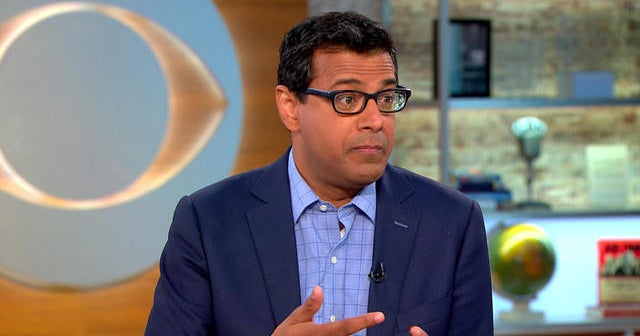By Kierra Frazier
/ CBS News
Ex-USAID official reacts to agency overhaul
Former USAID Global Health director Dr. Atul Gawande criticized the Trump administration’s plan to merge the United States Agency for International Development into the State Department and the funding freeze putting key aid programs in jeopardy, saying the decisions aren’t an “overhaul” but rather a “destruction.”
Gawande, a surgeon and medical professor, told CBS News on Monday that the “destruction” began a week ago after the White House Office of Management and Budget released a memo that ordered a freeze on federal assistance. The memo was walked back days later and the ordered freeze has been halted by a federal court, but some programs appear to still be in limbo.
“You’re talking about 20 million people in the global HIV program, that has reduced HIV around the world, they are going without medication that keeps them alive, Gawande said. “You’re talking about disease outbreaks that are not being stopped, like Bird Flu, where monitoring has been turned off in 40 countries.”
“There is a great deal of harm being done, and this change to take away the independent status is just a nail in the coffin after a purge of personnel that this may have decimated the agency,” Gawande said.
Gawande hit back at President Trump and billionaire Elon Musk‘s comments, who have both slammed the agency, with Mr. Trump recently saying the USAID is “run by a bunch of radical lunatics.”
“What we’re talking about are disaster relief workers. We’re talking about health workers and people who are doing good and protecting America around the world,” Gawande said.
The Trump administration is expected to announce details in the coming days about the disruption to the USAID, a 60-year-old organization that provides humanitarian aid to more than 100 countries. The agency provides humanitarian assistance abroad, particularly to countries recovering from disaster and trying to escape poverty. In fiscal year 2023, USAID managed more than $40 billion in appropriations, the Congressional Research Service said, a figure that is less than 1% of the federal budget.
Gawande said it’s “dangerous for the country to denigrate” the agency, saying it’s the country’s “largest civilian operational capacity for advancing” the work of the U.S. abroad.
“We’re talking about world-class expertise. For example, the Malaria program. Two-thirds have been fired, and the activity shutdown includes one of the global experts in Malaria for us. How does that make us safer? How does that make us stronger,” Gawande said.
“Every administration goes through an overhaul that says they want to change policy, they want to change some direction, but you don’t decimate and demolish the institution in the process,” Gawande said. “There was no need to close down all of its functions, which is harming people.”
- In:
- USAID


